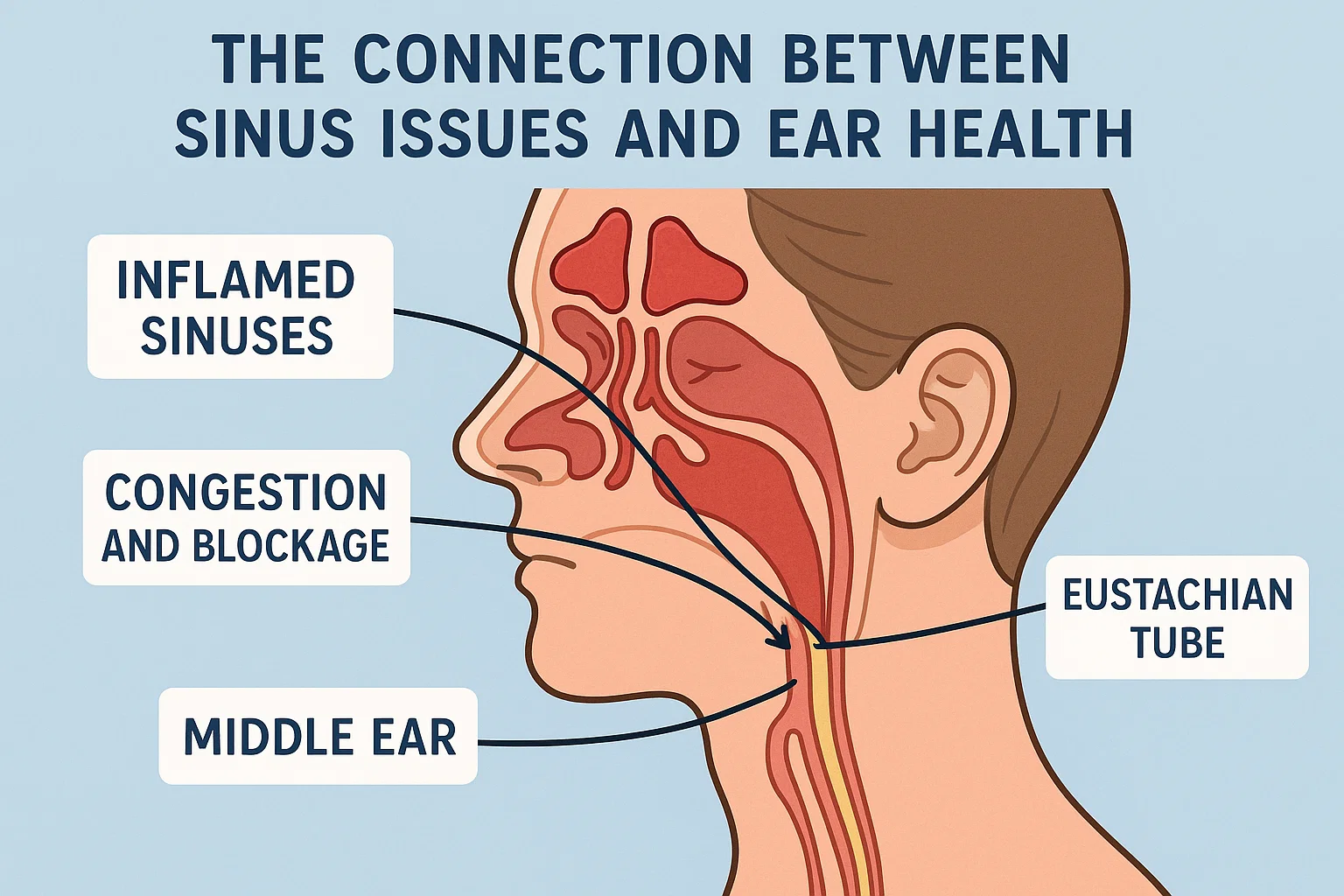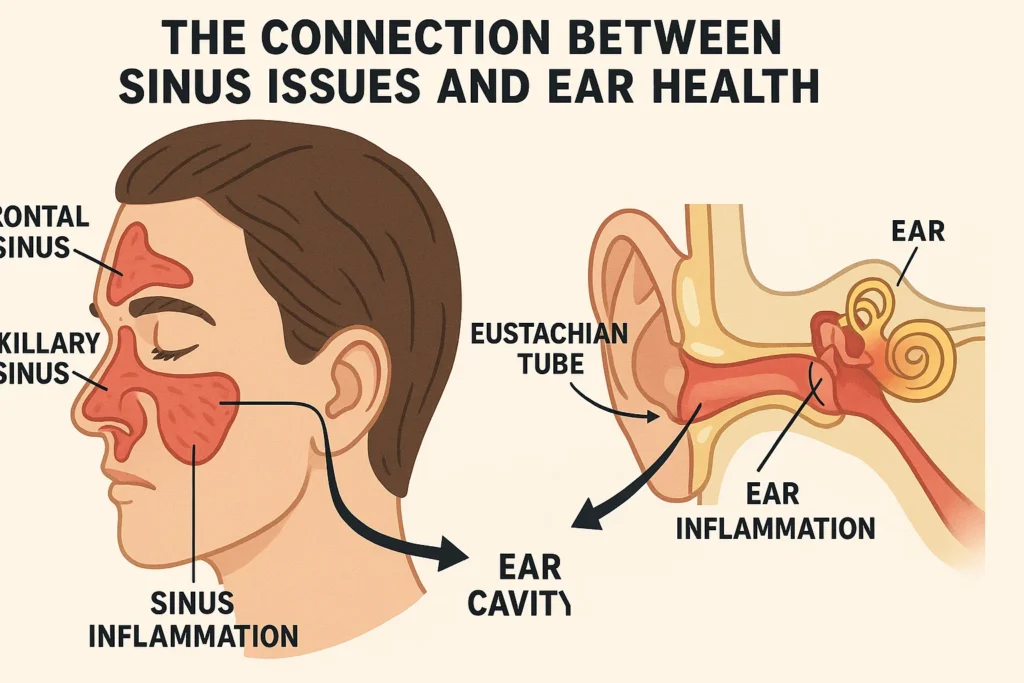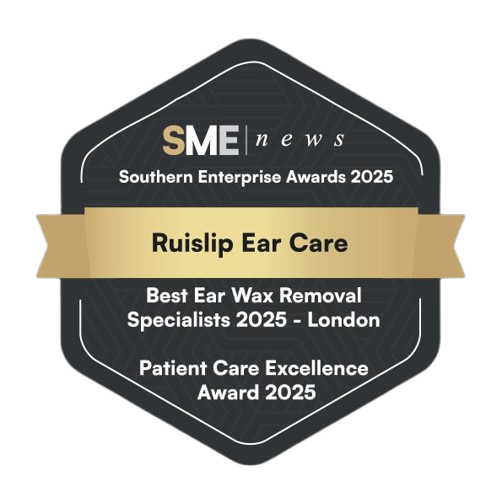The Connection Between Sinus Issues and Ear Health
Sinus problems are more than just a runny nose or facial pressure—they can have a significant impact on your ears. Because the sinuses and ears are closely connected via the Eustachian tubes, issues in one area can lead to discomfort, fluid buildup, or even infections in the other. Understanding the link between sinus issues and ear health is essential for preventing complications and maintaining overall ear wellness.

How Sinuses Affect Your Ears
The Eustachian tube connects the middle ear to the back of the throat and helps regulate air pressure and drain fluid. When sinuses are inflamed due to allergies, colds, or sinus infections (sinusitis), this tube can become blocked.
Consequences of blockage include:
Pressure and fullness in the ear
Fluid accumulation behind the eardrum
Temporary hearing loss
Increased risk of middle ear infections
Read more at Mayo Clinic: Sinusitis
Common Ear Problems Caused by Sinus Issues
1. Ear Pressure and Fullness
Sinus congestion can cause a sensation of fullness or pressure in the ears. This often worsens during flights, driving in mountainous areas, or sudden altitude changes.
2. Fluid in the Middle Ear
Blocked Eustachian tubes can trap fluid behind the eardrum, leading to serous otitis media. Symptoms include muffled hearing and discomfort.
NHS: Glue ear and middle ear fluid
3. Recurrent Ear Infections
Persistent sinus issues may lead to repeated middle ear infections (otitis media) as fluid builds up and bacteria or viruses take hold.
4. Tinnitus (Ringing in the Ears)
Inflammation from sinus congestion can sometimes contribute to tinnitus, causing ringing or buzzing sounds.
Symptoms Linking Sinus Issues to Ear Problems
Watch for these signs if you have sinus problems:
Ear fullness or pressure
Ear pain without obvious infection
Temporary hearing loss
Ringing or buzzing in the ear
Popping or clicking sounds
Fluid discharge from the ear
WebMD: Sinus problems affecting the ears
How to Protect Your Ear Health During Sinus Issues
1. Manage Sinus Congestion
Use saline nasal sprays to clear mucus
Take prescribed decongestants for short-term relief
Address underlying allergies to reduce inflammation
2. Avoid Cotton Buds or Inserting Objects in the Ear
Poking or cleaning your ears with cotton buds can worsen pressure or cause injury, especially when the Eustachian tubes are blocked.
3. Stay Hydrated and Maintain Humidity
Drinking water and using a humidifier can help thin mucus and improve sinus drainage, reducing ear pressure.
4. Consider Professional Ear Care
If fluid or wax buildup occurs due to sinus issues, professional earwax removal or microsuction can relieve pressure and protect hearing.

When to See a Doctor
Seek medical attention if you experience:
Severe or persistent ear pain
Hearing loss or muffled hearing
Fluid or pus from the ear
Frequent sinus infections with ear complications
Dizziness or balance problems
Early intervention can prevent chronic problems and maintain both sinus and ear health.
Treatment Options
Sinus medications: Decongestants, antihistamines, and corticosteroid sprays
Professional ear care: Microsuction and earwax removal for fluid or wax-related blockages
Surgical options: In severe cases, procedures such as ear tubes may be recommended for repeated infections
Final Thoughts
Sinus issues and ear health are closely connected. Ignoring sinus congestion can lead to ear pressure, fluid buildup, infections, and even hearing problems. By managing sinus symptoms and seeking professional ear care when needed, you can protect your hearing and overall ear health.
At Cleaner Ears, we provide expert ear care services, including microsuction and professional earwax removal. If sinus problems are affecting your ears, schedule an appointment today to maintain optimal ear health.

